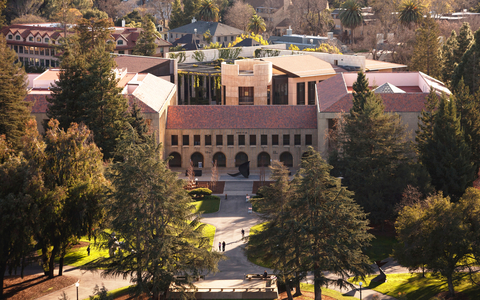Law schools in the US have a longstanding tradition in academic teaching excellence. If you are preparing to apply for US law schools, you will need to know which ones rank highest and which ones are best for your requirements. In this article we will check out the following four highest-ranking law schools in the country, according to US News rankings.
4. University of Chicago
Since its founding in 1890, the University of Chicago has driven new ways of thinking. It is one of the premier academic and research institutions in the world. The university has established itself in fields like sociology, ecology, and law. It also provided the very first executive MBA program and graduate international affairs program. At the University of Chicago, you can study specialized legal areas like health care law, legal writing, intellectual property law, trial advocacy, and dispute resolution. The law school provides two graduate degrees at the master’s level: Master of Comparative Law and Master of Laws.
First things first, though. You need to score high on the LSAT exam if you want to get into the law school of your dreams. It is, therefore, important you choose the best LSAT prep course before you take the examination. Check out this comparison chart to discover which online review course best fits your needs.
3. Harvard University
Established in 1636, Harvard University is the oldest higher education institution in the US. If you decide to study at Harvard’s law school, you will follow the likes of Barack and Michelle Obama. Also, more than a dozen current and former Supreme Court Justices have graduated from Harvard law school.
Via Harvard law school’s Student Practice Organizations, students in their first year can try out their legal skills in real-life situations, such as representing prisoners at disciplinary hearings or assisting local musicians in understanding copyright laws. After the first year, students can also partake in legal clinics. All students must complete at least 40 hours of voluntary or pro bono work before they can graduate, so they will be well-prepared to enter the law sector after graduating.
2. Stanford University
Located in the heart of Silicon Valley, Stanford University is one of the leading research universities on the planet. Since opening in 1891, Stanford has become known for its entrepreneurial character and its dedication to preparing students for leadership in the larger world.
The university’s law school is also one of the best in the country. With a student-faculty ratio of 4:1, students can ensure they get the personal tutoring and attention they need to succeed. The school specializes in legal areas like dispute resolution, environmental law, tax law, international law, and intellectual property law.
1. Yale University
Founded in 1701, Yale is the third-oldest institution of higher education in the US. Its history, academic achievements, and selectivity have made Yale one of the world’s most famous and prestigious universities. By attending Yale’s Law School, you can follow in the footsteps of notable alumni like former President Bill Clinton.
Students at the law school at Yale do not earn any grades during their first term. After the first term, law students are graded by honors, pass, low pass, credit, or failure. Class sizes at the Ivy League school are small, often with less than 20 students, which means students have a better student-faculty ratio. Yale has more than 20 legal clinics, so students can immerse themselves in real-life legal experiences, such as representing clients in apartment eviction proceedings, domestic violence disputes, and more. As well as clinical experience, students can test their legal knowledge in workshops and at on-campus centers.
For more great educational advice and tips, check out the other blogs on College Basics.







